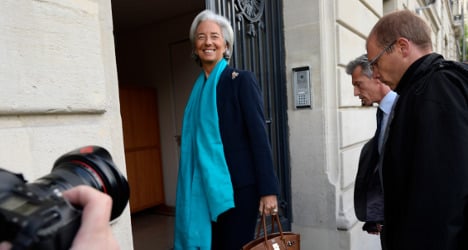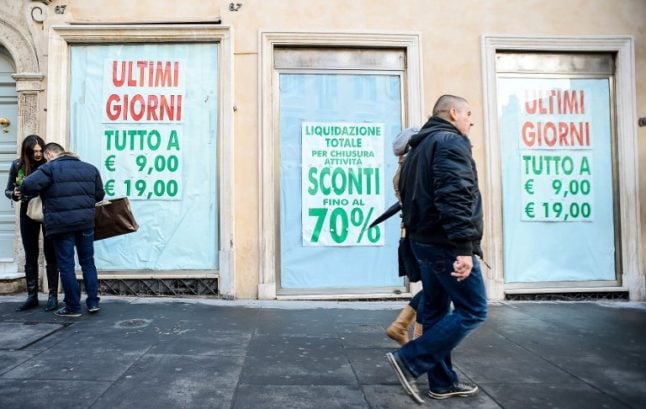French prosecutors will grill IMF chief Christine Lagarde for a second day after being heard all day by prosecutors who are due to decide whether she should be charged over a state payout to a disgraced tycoon during her time as finance minister.
"See you tomorrow," she told reporters after a long session at the Court of Justice of the Republic.
Criminal charges against Lagarde, 57, would mark the second straight scandal for an IMF chief, after her predecessor Dominique Strauss-Kahn, also from France, resigned in disgrace over an alleged assault on a New York hotel maid.
Despite Lagarde facing the possibility of charges the International Monetary Fund expressed "confidence" in its chief, Lagarde, on Thursday as she appeared in a French court to answer questions about her role in a 2007 payout scandal.
"The executive board has been briefed on that matter, including recently, and continues to express its confidence in the managing director's ability to effectively carry out her duties," IMF spokesman Gerry Rice said.
Lagarde has also received backing from the French government. Finance Minister Pierre Moscovici told AFP that Lagarde "retains the full confidence of French authorities and myself".
But government spokeswoman Najat Vallaud-Belkacem said she thought Lagarde's days at the IMF were over if she were charged.
Her court appearance comes after Lagarde, the first woman to run an organisation considered the pillar of the international financial system, was named the world's seventh most powerful woman by Forbes magazine.
Known for both her intellectual prowess and elegance, Lagarde smiled as she arrived at the courthouse in an upscale Paris neighbourhood, greeting the several dozen reporters outside with "It's a pleasure to see you again" before entering the building.
The Court of Justice of the Republic (CJR), which probes cases of ministerial misconduct, is seeking an explanation of her 2007 handling of a row that resulted in €400 million being paid to Bernard Tapie.
The former politician and controversial business figure went to prison for match-fixing during his time as president of French football club Olympique de Marseille.
Prosecutors working for the CJR suspect he received favourable treatment in return for supporting Nicolas Sarkozy in the 2007 presidential election.
They have suggested Lagarde – who at the time was finance minister – was partly responsible for "numerous anomalies and irregularities" which could lead to charges for complicity in fraud and misappropriation of public funds.
The investigation centres on her 2007 move to ask a panel of judges to arbitrate in a dispute between Tapie and Credit Lyonnais, the collapsed, partly state-owned bank, over his 1993 sale of sports group Adidas.
Tapie had accused Credit Lyonnais of defrauding him by consciously undervaluing Adidas at the time of the sale and argued that the state, as the former principal shareholder in the bank, should compensate him.
His arguments were upheld by the arbitration panel but critics claimed the state should not have taken the risk of being forced to pay compensation to a convicted criminal who, as he was bankrupt at the time, would not have been able to pursue the case through the courts.
The payment Tapie received enabled him to clear his huge debts and tax liabilities and, according to media reports, left him with 20 million-40 million euros which he has used to relaunch his business career.
Tapie on Thursday said he "is not at all worried.
"When an abritrage is conducted, it is done according to rules," he told Europe 1 radio. "If there had been something questionable, it would have been known a long time ago."




 Please whitelist us to continue reading.
Please whitelist us to continue reading.
Member comments